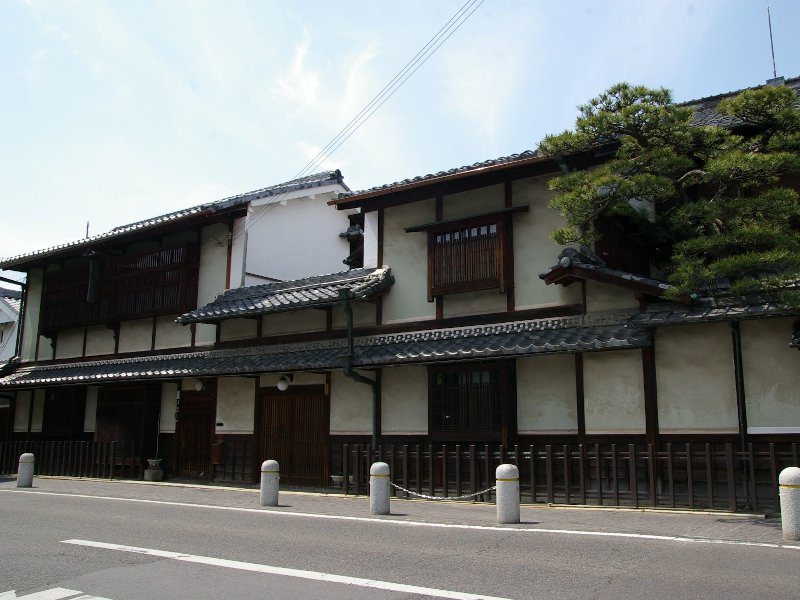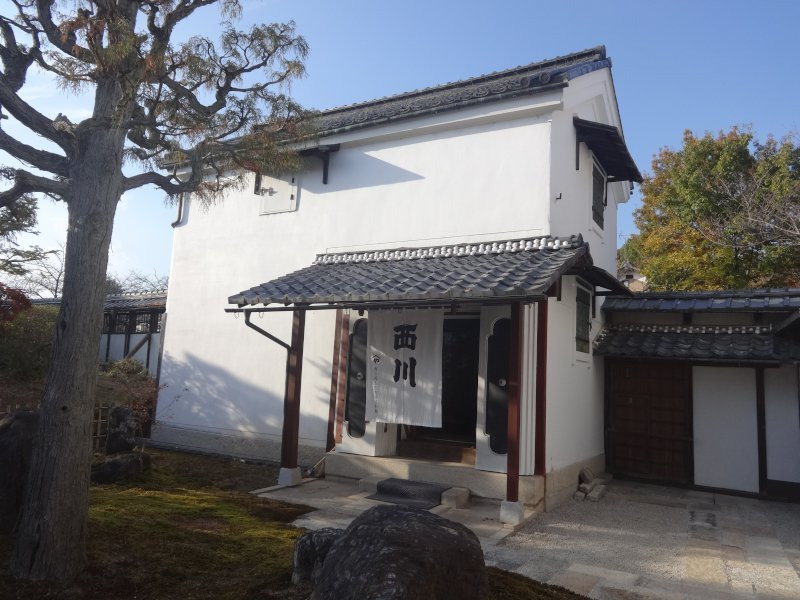Nishikawa Jingoro House and Museum


The Nishikawa Jingoro House was the home of the merchant family that founded the Nishikawa company, now best known for its bedding and other textiles. The house, in which members of the Nishikawa family resided from 1587 to 1942, is open to the public during limited periods in spring and autumn. A Nishikawa store and a small museum on the same premises welcome visitors year-round.
The Nishikawa family traces its lineage back to Nishikawa Niemon (1549–1644), who established a trading business when he was 17 years old. At 36, he moved from his home in the village of Minamitsuda to the nearby town of Hachiman (now Omihachiman) when he was commissioned to supervise construction at Hachimanyama Castle. Two years later, he opened a shop in Hachiman called Yamagataya that sold mosquito nets and tatami surface matting, laying the foundations for a company that was to profit greatly from its business in Edo (now Tokyo) from the seventeenth century onward.
The Nishikawa company’s success was in large part due to the efforts of Nishikawa Jingoro (also Jingo; 1582–1675), the fourth son of Niemon, who took charge of the family business after his father in 1628. Jingoro is credited with laying the groundwork for Nishikawa’s future growth through shrewd marketing tactics, including dyeing the company’s mosquito nets light green to make them more visually pleasing. The mosquito net was an essential household item in cities such as Edo and Osaka, as their many rivers and waterways made the insects a ubiquitous nuisance. Jingoro’s idea to dye his company’s nets the color of spring leaves and promote the product as assuring better sleep elevated the mosquito net from a household necessity to a lifestyle item.
One of Nishikawa’s innovative mosquito nets, along with documents and various artifacts that tell the story of the family through the centuries, is on display in the Nishikawa museum, which is set in a traditional storehouse in the garden beside the Nishikawa Jingoro House. Next to the museum is the Nishikawa Omihachiman Store, where visitors can purchase souvenirs and Nishikawa products such as futon mattresses and comforters, which became the company’s focus once demand for mosquito nets faded.
Both the store and museum are open between 10 a.m. and 5 p.m. every day except Tuesday. Admission to the museum is free.